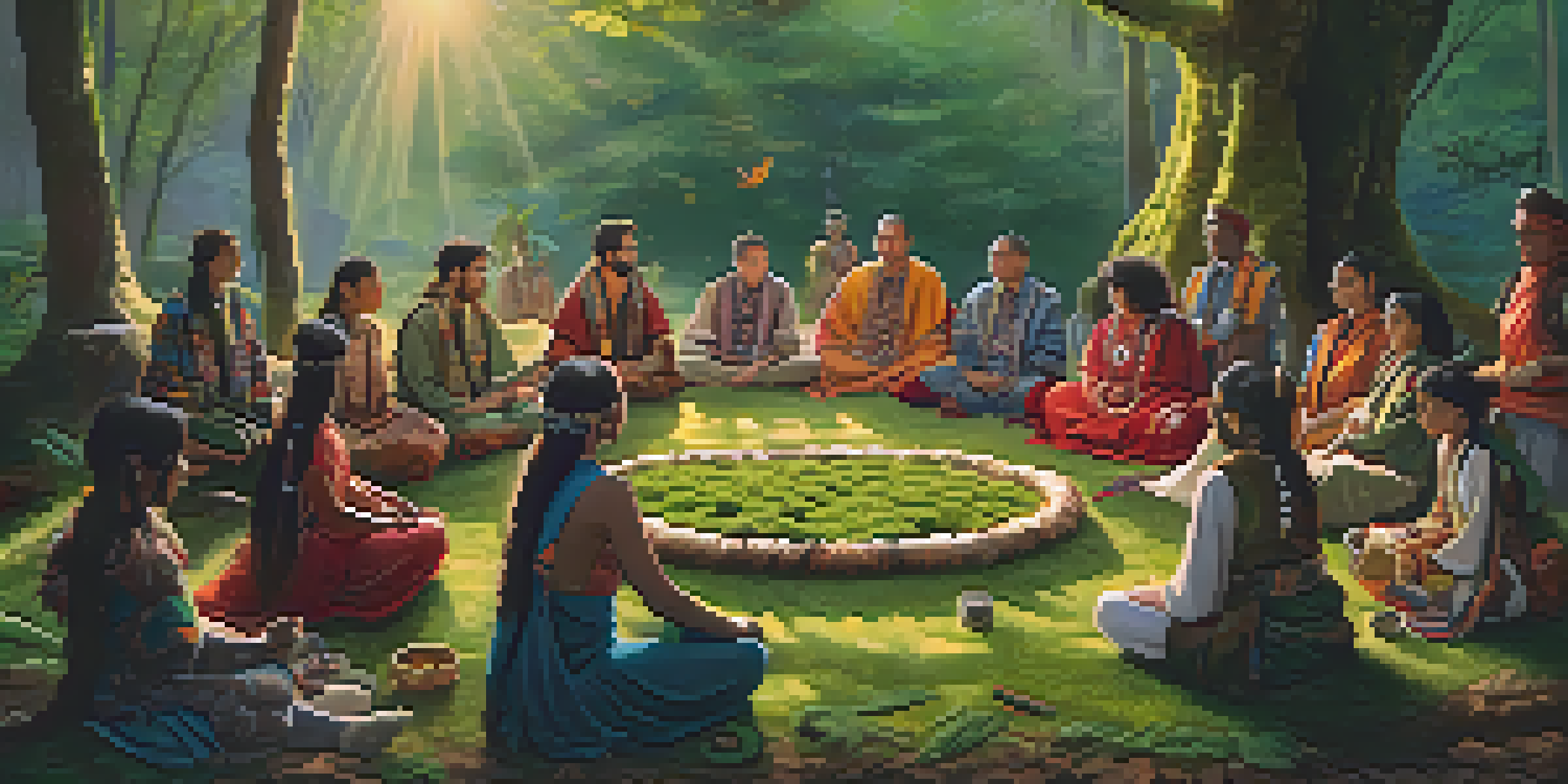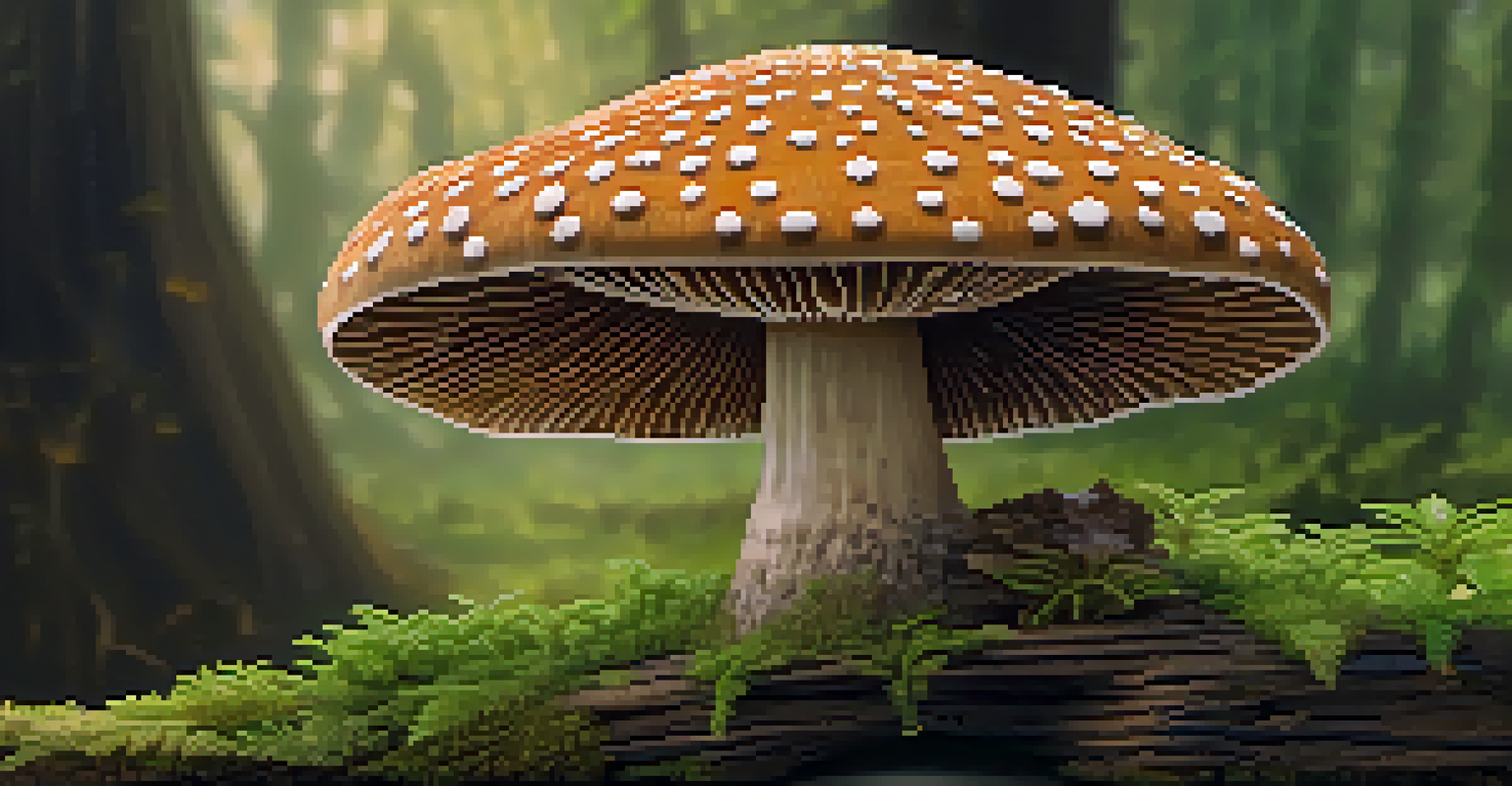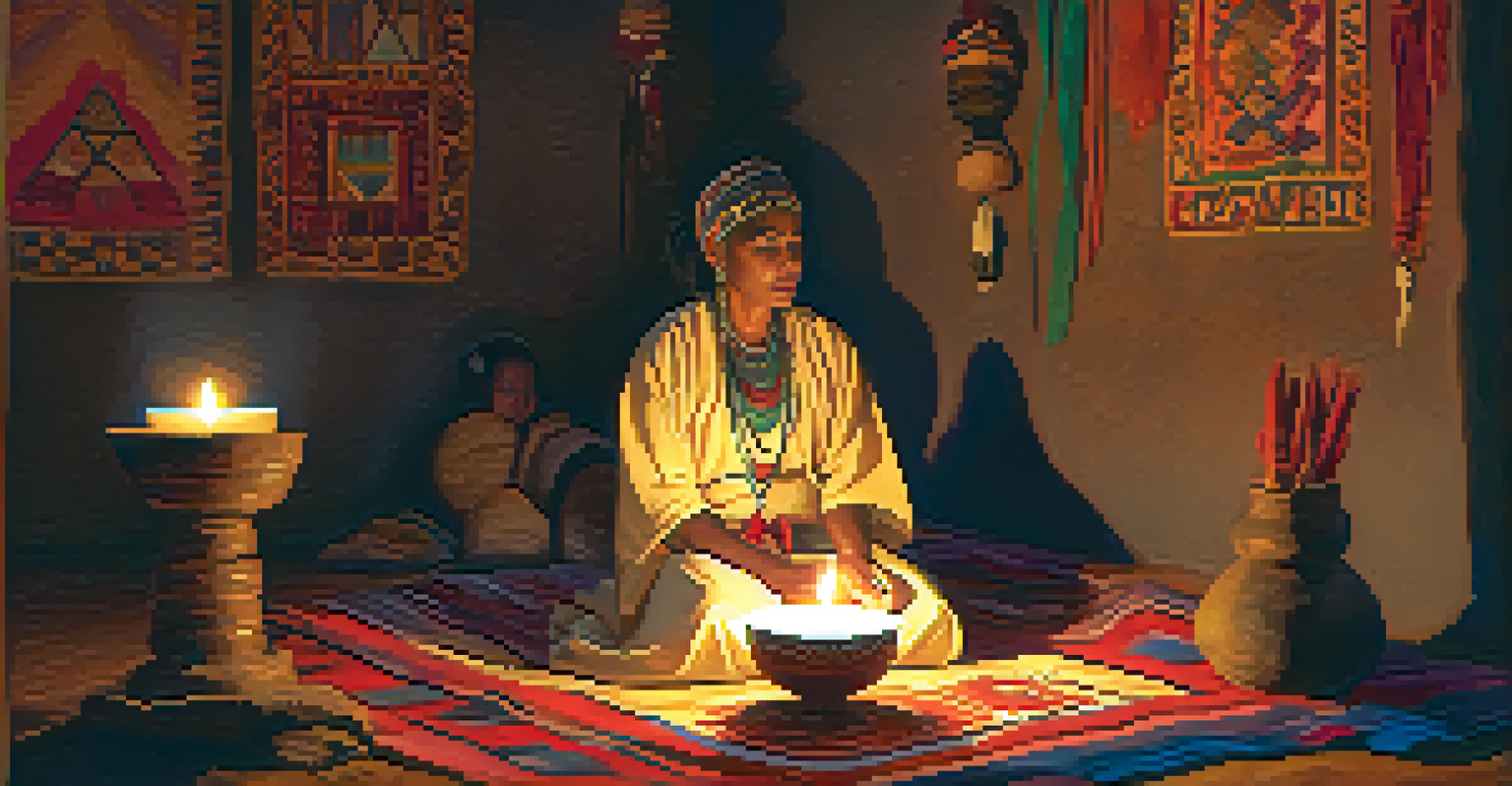Decolonizing Entheogen Practices: A New Approach

Understanding Entheogens and Their Cultural Significance
Entheogens are substances like ayahuasca and psilocybin mushrooms, often used in spiritual practices. Their use dates back centuries, particularly among indigenous cultures, where they are considered sacred tools for connection with the divine. By understanding the cultural significance of these substances, we can appreciate their role beyond mere recreational use.
The use of entheogens is a means of reconnecting with the sacred, a practice that has been valued across cultures for millennia.
Indigenous communities have historically guarded these practices, embedding them deeply within their cultural identities. This means that the proper context and respect for these traditions are essential for anyone looking to engage with entheogens. Recognizing their historical and cultural roots is the first step in decolonizing these practices.
In this light, we must move away from treating entheogens as mere commodities and instead view them as sacred elements of a rich cultural heritage. This perspective can foster a more respectful and meaningful engagement with these substances, paving the way for healing and transformation.
The Impact of Colonization on Entheogen Practices
Colonization has significantly altered the way entheogens are perceived and used. Many indigenous practices were suppressed or demonized, leading to a disconnection from their rich cultural context. As a result, the therapeutic potential of these substances has often been overlooked or misappropriated.

This disconnection has resulted in a loss of traditional knowledge and practices surrounding entheogens. Indigenous wisdom, honed over generations, is often sidelined in favor of modern, Western approaches that lack the same depth and understanding. This shift not only disrespects indigenous cultures but also undermines the efficacy of the practices themselves.
Cultural Roots of Entheogens
Entheogens like ayahuasca and psilocybin mushrooms have deep cultural significance, serving as sacred tools in indigenous spiritual practices.
To decolonize entheogen practices, we must acknowledge this historical context and strive to restore the voices of indigenous practitioners. By doing so, we can create a more equitable space for healing, one that honors the original custodians of these sacred substances.
Integrating Indigenous Knowledge into Modern Practices
A key aspect of decolonizing entheogen practices involves integrating indigenous knowledge. This means respecting the traditions and rituals that have been developed over centuries, rather than simply adopting practices without context. For instance, participating in ceremonies led by indigenous healers can offer invaluable insights into the appropriate use of entheogens.
To truly understand the power of these substances, we must honor the voices and traditions of those who have used them for generations.
By learning from indigenous practitioners, we can better understand the nuances of set and setting, which are crucial for a safe and transformative experience. This approach encourages a deeper connection to the substance and its intended purpose, fostering a more authentic and respectful relationship.
Additionally, these collaborations can help bridge the gap between indigenous knowledge and contemporary therapeutic practices. By valuing and incorporating these insights, we can enhance our understanding of entheogens and their potential to promote healing in a culturally sensitive manner.
Ethical Considerations in Entheogen Use
When engaging with entheogens, ethical considerations must not be overlooked. It’s essential to ask questions about the sourcing of these substances and the impact of their use on indigenous communities. This ensures that our practices do not contribute to the exploitation or commodification of sacred traditions.
Moreover, ethical engagement involves being mindful of the power dynamics at play. Those who are not part of indigenous cultures should approach these practices with humility and a willingness to learn, rather than assuming ownership. This mindset fosters a respectful environment where cultural exchange can occur.
Decolonizing Entheogen Practices
To honor indigenous traditions, it's essential to restore their voices and integrate traditional knowledge into modern entheogen use.
By prioritizing ethics in our practice, we can cultivate a more responsible and respectful approach to entheogens. This not only honors the traditions of indigenous peoples but also enriches our own experiences with these powerful substances.
Creating Safe Spaces for Entheogen Use
Creating safe spaces for entheogen use is crucial for fostering healthy experiences. These spaces should prioritize respect, openness, and cultural sensitivity, ensuring that participants feel supported in their journey. This can be particularly important for those who are new to entheogenic experiences.
Incorporating educational components into these spaces can also enhance safety. Providing information about the substance, its effects, and the cultural context behind its use can empower participants to make informed choices. This approach encourages a more meaningful interaction with the entheogen.
Finally, it’s essential to include trained facilitators who understand both the substance and the cultural nuances involved. These guides can help navigate the experience, ensuring that participants can safely explore their consciousness while honoring the traditions from which these practices originate.
The Role of Community in Decolonizing Practices
Community plays a vital role in the decolonization of entheogen practices. Building supportive networks allows individuals to share experiences, knowledge, and insights, fostering a collective understanding of these substances. This communal approach can enhance the healing potential of entheogenic practices.
Engaging with local indigenous communities can also facilitate deeper connections and understanding. By working collaboratively, we can support the revitalization of traditional practices and ensure that indigenous voices are at the forefront of the conversation. This partnership can lead to a richer, more informed use of entheogens.
Ethics in Entheogen Use
Engaging with entheogens ethically requires respect for indigenous communities and a commitment to avoiding the exploitation of their cultural practices.
Ultimately, a strong sense of community can help dismantle the individualistic mindset often associated with entheogen use. By emphasizing a collective experience, we can honor the communal aspects of these practices that have been central to their use in indigenous cultures for centuries.
Future Directions for Entheogen Research and Practice
As interest in entheogens grows, there’s a critical need for research that respects and integrates indigenous practices. Future studies should prioritize collaboration with indigenous communities, ensuring that their knowledge and perspectives are valued. This approach can enhance our understanding while supporting the preservation of cultural heritage.
Innovative practices that combine modern therapeutic techniques with traditional wisdom are also emerging. These hybrid models can offer new insights into the healing potential of entheogens, bridging the gap between ancient practices and contemporary science. This synthesis could lead to more effective and culturally sensitive treatment options.

Looking ahead, it’s essential to foster an ongoing dialogue about the ethical implications of entheogen use. By continuously reflecting on our practices and their impact on indigenous communities, we can ensure that future directions are rooted in respect, collaboration, and mutual benefit.